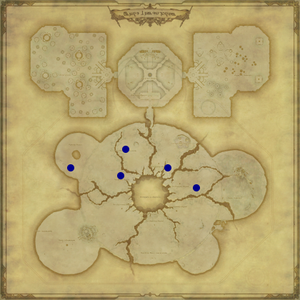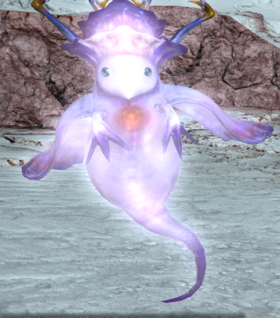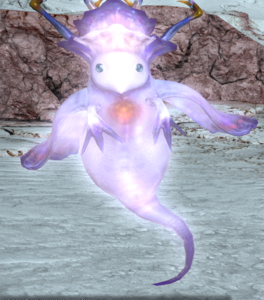Daphnia Magna
Daphnia Magna
Daphnia Magna is a Rank B Elite Mark in Mare Lamentorum.

Killing the Elite Mark will reward the player ![]() 5,000 gil and
5,000 gil and ![]() 100 Sacks of Nuts if the mob is the weekly Elite Guildship Mark Bill.
100 Sacks of Nuts if the mob is the weekly Elite Guildship Mark Bill.
Coordinates
| Zone | Coordinates | Level range |
|---|---|---|
| Mare Lamentorum | (X:10.4, Y:24.0) | 90 |
| Mare Lamentorum | (X:17.4, Y:25.1) | 90 |
| Mare Lamentorum | (X:18.1, Y:21.4) | 90 |
| Mare Lamentorum | (X:24, Y:24) | 90 |
| Mare Lamentorum | (X:28.0, Y:26.8) | 90 |
Spawn Conditions
Trigger
Normal Spawn
Time
5 seconds after death
Tips and Tricks
- Parasitism is an uncasted attack doing slightly more damage than its auto-attack.
- Acid Stream is telegraphed circle AoE on the main target doing slightly more damage than Parasitism.
Description
“Ahem! Volcanoes have been found to erupt in pillars of smoke that reach beyond the clouds. Now, suppose an organism of some kind—one capable of withstanding significant heat and pressure—was not only carried aloft by that eruption, but shot beyond our sky...
Even if the chances are one in ten thousand—or one in one hundred million, or one in a trillion!—there need be only a single specimen on the moon to prove my theory. I can see it now...the shape of my dreams incarnate!
...Or invertebrate, as the case may be. Yes, a species of crustacean fully adapted from generations of life on the moon—"daphnia magna."— Chrysielle, Old Sharlayan Aetheryte Plaza, Old Sharlayan
Lore
“On rare-yet-terrifying occasion, volcanoes erupt in pillars of smoke that reach beyond the clouds. Ever imaginative, xenobiologist Chrysielle theorizes that such pillars may have once carried particularly hardy organisms to the very heavens, leading to the evolution of species of heat- and pressure-resistant invertebrates upon the lunar surface. She also speculates that said creatures would be of unusual size, though the basis for this conjecture remains unclear.
— Encyclopædia Eorzea Volume III, p. 301

